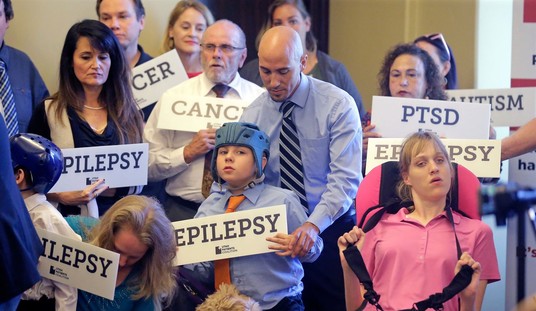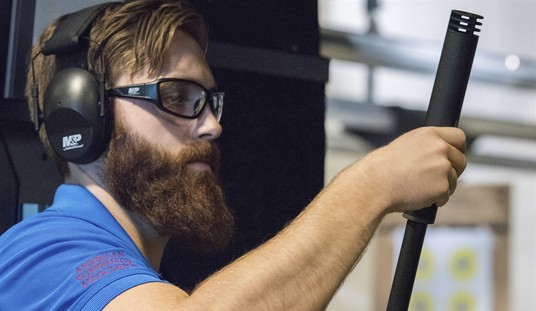Once we were attacked by the Japanese, Germany and Italy declared war on us a day or two after. Men went quickly to sign up and many were drafted. On the West Coast, Japanese American citizens were rounded up and placed in internment camps. It was not only sad, but frightening. As a family of German American roots, I remember thinking that the same thing might happen to us, but it never did.
Canned goods that were used had to be rinsed out, the label stripped from the can, and the bottom removed. It was then placed on the floor and crushed with the foot. We collected these and each week they were place at the curb for pickup. The metal was reused for more cans or whatever purpose the government had in mind. We never questioned it; we just did it
We had Victory Gardens in our yards during the summer months and many of us canned and preserved the vegetables and fruits that were grown. Canned goods were rationed, so this was a means of getting your own canned goods without having to pay ration stamps for it. Besides all that, it seemed tastier.
One of the items I remember eating was called SPAM. SPAM was in a can and to me was horrible. Mom insisted that it did not need ration stamps and we should eat it. I remember saying that if it did not need ration stamps, it was because it was so awful they couldn’t pass it off any other way. Maybe it didn’t need ration stamps, but, to this day I think it did, and she told us that so we would not fight eating it. They still sell SPAM so I guess it has some eaters, but I couldn’t stand it. (Sorry SPAM)
My Pop was a very astute business man, but like most men found figuring out household items was not his forte. One Sunday, company that we did not expect dropped in. My parents were always hospitable and insisted they stay for evening supper. Mom ask my father to go the the Delicatessen and get some cold cuts cheese and bread. She gave him the ration books which turned out to be a mistake. He wasn’t used to shopping with a ration book and when he returned with a huge order of food, he had used up almost all of her meat ration stamps for a month.
That turned out to be a somewhat lean month for us, but Mom did herself proud. She would take a pound of chopped meat and add lots of filler which contained bread, oatmeal etc. And made a meat loaf that served seven or eight of us with some left over for sandwiches the next day. It was probably better for us than if done any other way. For that next month, we had lots of vegetable soup, macaroni, and pancakes and anything else she could drum up. We survived.
Instead of having a bank day at school, we had a stamp day. We bought War Stamps and pasted them into a book. When the book was full, we exchanged it for an $18.75 War Bond. If you kept this bond for ten or eleven years, it would mature into $25.00. It may not seem like much now, but in 1941 and beyond, it seemed like a lot of money.
Once winter came upon us, some of the mothers of the girls in my school made their daughters wear an item called “Snuggies”. Snuggies were supposed to keep you warm in the Winter. They were like a pair of underwear but they came down to the knees and had elastic at the bottom. If not hiked up, they came embarrassingly below the knees as the elastic wore out at the knee portion of the Snuggie. We girls hated them because they were a constant source of humiliation for us. One would have to walk around all day hiking up the Snuggies. Eventually, we would start a small slit in them so that it would weaken them, and during each wearing pull a little more until they would finally tear. Mom would always wonder why they wore out so soon and finally stopped buying them for me and my sister. I think I was finally 21 or 22 years old before I admitted what I did to get rid of the Snuggies.
One of the sad things I remember was the Gold Star Mothers. Every Mother who had a son in the service had a flag hanging in her window with a star on it. If the son was killed in action, the flag was replaced with one containing a Gold Star. Our town in those days was not that large, so most of us knew one another or at least heard of one another. I can remember coming home from school and seeing a flag in a window which I had seen for months that suddenly became one with a Gold Star. I remember running home and telling my Mom who immediately made a condolence call. Not that it did that much good for a mourning mother, but in those days we all always reached out to one another and it was a good thing.
There was a young man in our church that I had a tremendous crush on. He was so handsome with warm brown eyes and brown hair. He was a bomber pilot and looked so wonderful in his uniform. My eyes always searched for him when I went to church to see if he was there. Sadly, one day I was told that he was killed in a bombing raid the day before D-Day. I always wondered what it would have been like if he had lived. There were so many young lives that were changed that it left a lasting impression on all of us.
The Carlson family lived around the corner from us and our kitchen window overlooked their backyard. Their youngest daughter, Dagmar, was my closest friend. Dagmar had two sisters who were each married to servicemen– one in the Navy and one in the Army. We wrote to them when we could and I think that helped us to become very close. I always considered the Carlson’s to be like second parents to me.
One day, I was at our kitchen sink and saw Mom Carlson come out her back door crying and holding a yellow envelope. Everyone knew that a yellow envelope meant some notification from the War Department. I called to my Mom immediately and explained what I had seen.
We both ran over to see if we could be of any assistance. Charlotte’s husband Ken had been wounded in action. None of us knew how bad it was, but a letter was to follow explaining it all. We went to where Charlotte worked and told her the news. Since she was obviously upset, her employer told her to go home. We found out later that he was wounded in The Battle of the Bulge.
Before Astrid’s wedding her intended husband had flown in from the Pacific and had a thirty day leave so their wedding was planned. Mom Carlson pulled the wedding together in one week. Dagmar and I were her bridesmaids, Charlotte was her Maid of Honor and my Pop was one of the ushers. The gowns cost somewhere in the neighborhood of $18.00 each We felt so elegant in them. Nothing had seemed elegant since the war began.
The wedding was held in our church and the reception was held at the Carlson home. It was a wonderful time for all of us. When it was over, Dagmar and I walked to our main avenue in town and did cartwheels in our beautiful gowns. Everything then was hard, but again I say richer. We received so much happiness from the simplest things and learned to really appreciate them.
Astrid’s husband was in the Pacific theater and was a “belly” gunner in a fighter plane. Astrid told me the story of how his plane was downed one day and the means of repair enabling them to return back to base was a pencil eraser. I never got the story in entirety, but thought just that detail made it quite a story.
My husband served in the European Theatre for almost 5 years. He was fortunate to come home without wounding, but it had a lasting impression on him until the day he died. He was in a cleanup group that had to go into a town and shoot at anyone remaining in a building who were shooting at them. It would be soldiers and sometimes civilian women who were there shooting.
He also found it difficult to make friends because he was afraid to become too close to anyone. He had one close friend who was not supposed to leave the jeep in a particular area. The friend said that he had to relieve himself and stepped out. He stepped onto a landmine and was immediately blown to bits. It was hard for him to accept that one moment he had a friend and the next he was gone.
One thing that made a lasting impression was the removal of the many bodies which floated down from the Rhine River and which became his job to, respectfully as possible, remove, wrap, and place onto a flatbed truck to be taken to a place for identification. Many of them had been in the water for days and were badly bloated and disfigured. The odor was something he could never get out of his mind. Although he finally became adjusted to it, It disturbed him more than the shooting and clean up of the enemy in the different towns. It always went through his mind that he could have been one of those bodies and someone else could have been taking his body out of the water. There have to be many stories like this from every war, but it was the one we lived through that made the lasting impression on us.
As we got near to 1943 and 1944, everyone was making bets as to how long the war would last. Every morning preparing for school, I listened to the radio and listened to how our troops inched their way along. Some days the fighting was horrendous and the only progress would be one mile and then other days they had conquered many miles. I would come home after school and again check the news. I knew we were winning, but it seemed so long coming. I can only imagine how the troops felt about it.
It was not to long before the Italian Partisans captured Benito Mussolini. He and his mistress were hung upside down in a town square and their bodies abused. As different towns were liberated, women who were collaborators in both Italy and Germany had their heads shaved, stripped to the waist, and were paraded through the towns to be mocked and spit upon.
Once the war in Europe was over, Life Magazine had a huge cover showing mountains of bodies that were inside the different camps that were liberated. Their magazine was full of stories of the murders and cremation of so many human beings.
Charlottes husband told us of being in one of the camps and seeing lamps, gloves, shoes, and handbags made out of human skin. For many years I resented the German people for what they had done. I felt a strong sense of shame about that situation. Many times my mother would receive letters asking for help with food and clothing. They were always prefaced with “We didn’t know what Hitler was doing. We had nothing to do with it”. My reaction to this day is that they had to know and were maybe complicit.
We had completed the war in Europe, but still had to finish the one with Japan. Our President had died in April of that year and we now had Harry Truman as our President. It was his unfortunate job to make a decision about dropping the A-Bomb in Japan. When he took office, he didn’t even know of the bomb’s existence. It had to be very difficult for him to make that decision. After the first bomb was dropped, the Japanese still did not surrender until after the second one was dropped.
This confirmed what the government already suspected and that was that the Japanese would never have surrendered if we invaded their country. It would have meant house-to-house fighting for our troops and considered to mean the sacrificing of another one million American lives. It became a very simple choice. Their lives or those of American servicemen. It was a sad situation never-the-less. No American was happy about Hiroshima or Nagasaki, but if it spared our American fighting men lives in a war we never started, it became no contest.
The War with Japan finally ended on what is known as VJ-Day.
What you have read here is the reason so many of our generation feel so strongly about our patriotism. We were a generation like tempered steel hardened by the sacrifice of depression and found this made us better able to handle the War.
I had a brother who when able joined the US Marine Corp. I had two cousins — one in the Navy and one in the Air Force. I had a Step-brother in the Navy. The thing I would like to point out is that my family was not unique. This was the way it was for all American families at that time so that is why we all feel so strongly about our country.
In addition to all this, we handled the Korean War (I lost a dear friend in that one) Vietnam, Gulf Wars I And II, the continuing wars in Afghanistan the unrest in the Holy Land, Croations and Serbians and whatever else has been in existence in the past 80 years of my life in this glorious country.
Nothing was too much for us during those times because our cause was just and we wanted to do just that. Still, none compared with the sacrifices of the generation of our Founders.
Our generation went to school and studied our country’s history and a great deal of it concerned our Revolutionary History. Every classroom had a print of George Washington on its wall.
After all these years, I now live in Williamsburg, Virginia. It is not far to Yorktown from here and I always make it a yearly Pilgrimage to Yorktown on October 19th the anniversary of the Cornwallis surrender at Yorktown.
I visit Surrender Field and the two main Redoubts, Redoubts 9 and 10. If you have never been there, you would be amazed to see them– especially Redoubt 10. It looks like so little, but the British had no where to go except to fall many feet down off a cliff into the York River below which was about 80 feet deep at that point. They probably would have all drowned and so they surrendered. It is so simple to see and so moving to be there.
The surrender ceremony took place the next day at Surrender Field. Cornwallis did not attend because he claimed he was too ill to do so. The surrender of Cornwallis was handled by one of his officers named O’Hara.
Whenever I go there, I’m usually alone except for my dog. I think of General Washington and the soldiers he had and the sacrifices they and he made to give us this country. It was a supreme gift and a gift we should treasure. And then I think of succeeding generations and the gifts they gave of their lives to protect that gift that we were given by that group of soldiers and a General so many years ago.
And so I’m not ashamed to be moved to tears of appreciation and gratitude over what our forefathers did for us many years ago. I do not romanticize this when I tell you that I say prayers of thanks while I am there. Not all Saints are canonized and if the General is not one of them I would be surprised. I plead with him to intercede for our country with our Lord and God and ask him not to let their sacrifices and those that came after to have been in vain.
When I traced my husband’s history I found that he had two relatives in that war, and he had one in the war of 1812. Then I think of all those who came after those wars who did the same thing– even those whom I knew personally.
The most important thing to me as an American is that I want to make my own decisions as I have for years and I don’t want our Government telling us what we can and can’t do. Too many people for too many generations gave their lives so that would never be the case. I believe in that right for Americans as did those wonderful Americans many years ago who fought and died for that very principle. Do not allow all those sacrifices of so many be shredded now.
Remember these things on October 19th, the date of the very first surrender and especially on November 11th, Veterans Day be reminded of all generations of Servicemen who gave us so much. Let no person or any country be allowed to destroy what we have had as Americans. Never allow them to make a mockery of those who sacrificed so very much for so many of us.
Thank you for reading the words from the heart of an Old Patriot!








Join the conversation as a VIP Member